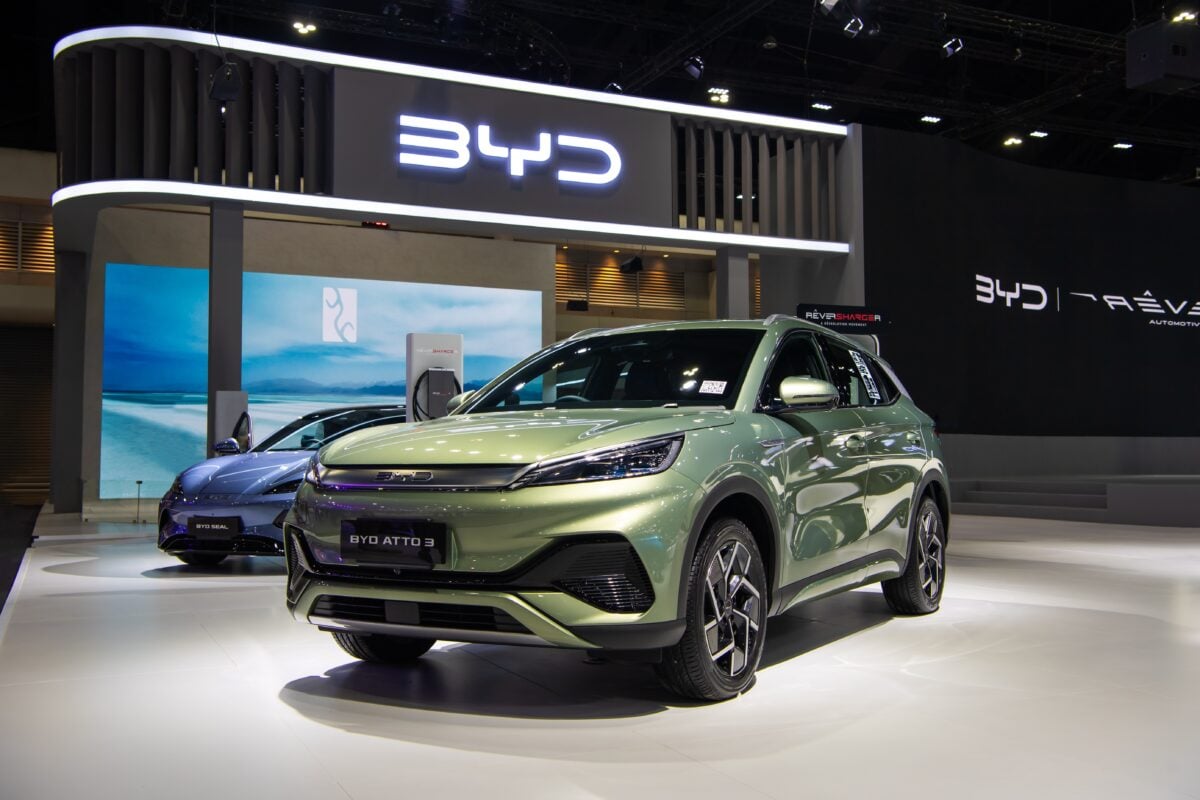TLDRs;
- BYD prepares to relaunch expansion in India as business visas for Chinese executives resume.
- The automaker plans to introduce its Atto 2 SUV under ₹20 lakh despite steep import levies.
- BYD is considering local battery pack assembly and partnerships but no fresh investment yet.
- Domestic players dominate over 90% of India’s EV market, creating stiff competition for BYD’s comeback.
Chinese electric vehicle (EV) manufacturer BYD is preparing to strengthen its footprint in India as relations between New Delhi and Beijing show signs of easing.
Sources familiar with the matter say the Shenzhen-based automaker, already India’s fourth-largest EV seller, is moving to send senior managers and engineers back into the country after a years-long freeze in travel and staffing.
For the past five years, BYD was forced to manage its Indian operations remotely, a direct result of strained diplomatic relations that restricted business visas for Chinese nationals. This lack of on-the-ground leadership hindered critical functions such as training, servicing machinery, and assessing factory operations. Now, with India resuming visas for Chinese executives, BYD is preparing for a more hands-on strategy.
New compact SUV in the works
A key part of BYD’s expansion plan centers on its new compact SUV, the Atto 2. Industry insiders say the company aims to launch the model in early 2026, priced under 2 million rupees (around $22,700).
The pricing strategy is notable given India’s steep 70% import levy on foreign EVs, signaling BYD’s attempt to remain competitive in one of the world’s fastest-growing car markets.
BYD currently offers four models in India but has struggled to break into the top three automakers by sales. Despite being the world’s largest EV seller globally, BYD holds only the fourth spot in India, largely because of operational constraints linked to diplomatic tensions.
Regulatory approvals and local partnerships
As part of its broader expansion plan, BYD is seeking approval to import additional vehicles into India. While no new investments have been announced during the current visits, the company is exploring future possibilities, including localized battery pack assembly and potential joint ventures with Indian partners.
Industry observers believe these moves could help BYD reduce costs and navigate India’s heavy import taxes while building stronger ties with local suppliers.
However, the timing is critical as the domestic EV sector has become highly competitive, with Tata Motors, JSW MG Motors, and Mahindra now commanding more than 90% of market share.
Competitive landscape intensifies
The window for BYD’s return is narrowing. India’s EV market, though still at an adoption rate of just 7.6% of new vehicles in 2024, has grown exponentially. Sales surged by over 2,200% between FY 2020 and FY 2023, attracting both domestic and international challengers.
New entrants like Vietnam’s VinFast are already undercutting prices. The company recently launched its VF6 compact SUV at just ₹16 lakh, positioning it directly against BYD’s planned Atto 2. Meanwhile, Tata Motors continues to dominate with an extensive dealer network and established consumer trust, leaving BYD with the challenge of catching up after years of absence.
Still, BYD’s global scale and technological edge provide an advantage. Its ability to mass-produce EVs and innovate in battery technology could help it close the gap in India if it manages to execute efficiently this time around.





